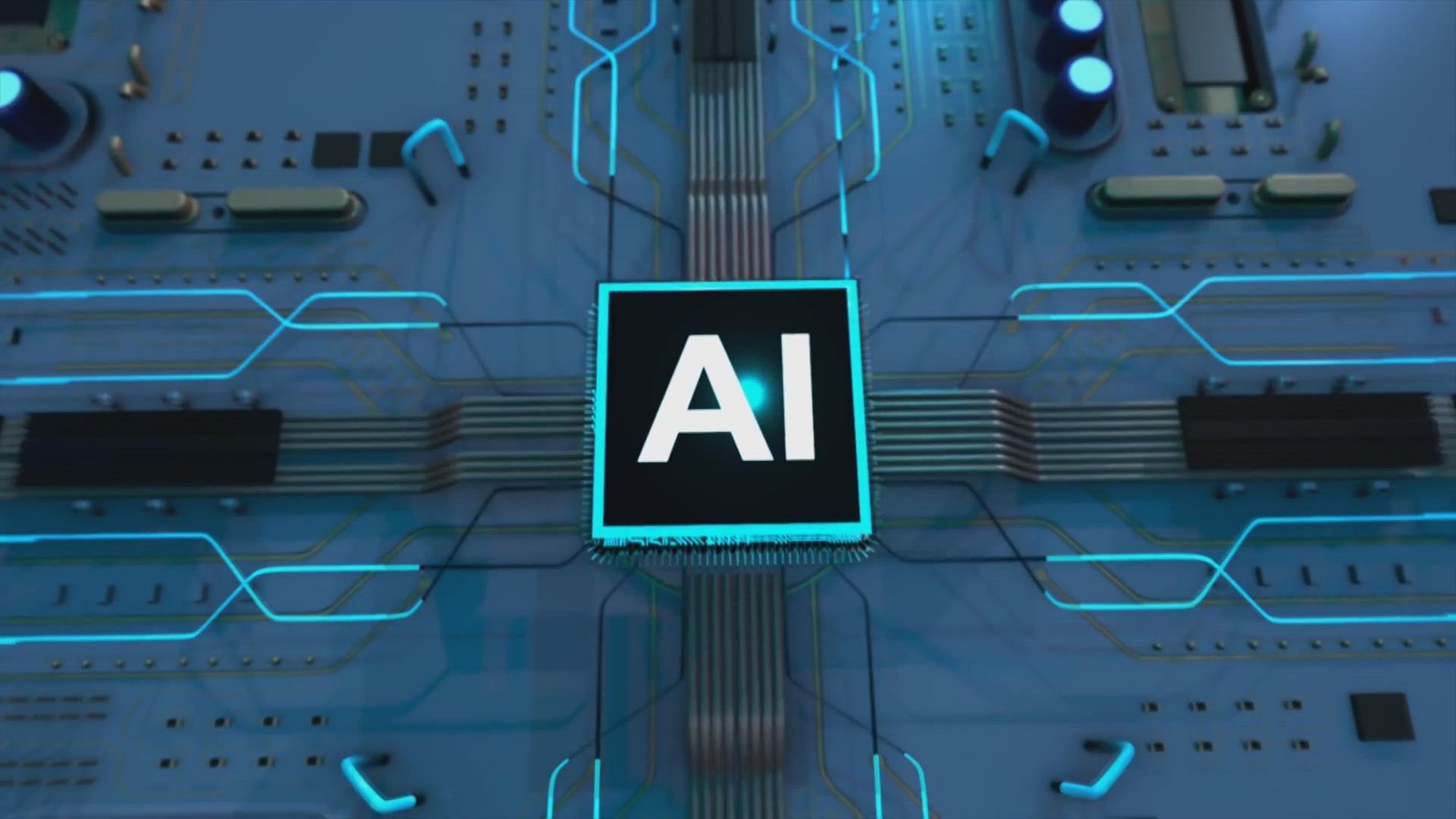ST CHARLES, Mo. — Whether it’s a police report, a warrant or a summary of a police interrogation, in St. Charles, there’s a good chance a police officer didn’t write it.
That’s because the department is now using Artificial Intelligence, or AI, to write routine but time-consuming police and court documents.
Chief Ray Juengst said it’s giving officers more time on patrol – a critical need, especially as police departments struggle with recruiting to keep their rosters full.
“If you look back through the history of law enforcement, originally we wrote reports, then we called them in to some type of secretary or someone at the desk typing them out, then we started using computers,” Juengst said. “This is just the next step in it.”
So, how does it work, and what could go wrong?
Officers enter information about a case into the computer program, toggle the AI tool, and it will generate a document by relying on the new information along with information previously entered into the system.
The concept is that the more information that gets entered, the smarter the program gets in terms of citing statutes and other details.
But what if that information doesn’t make the program smarter, but rather more prone to mistakes, notes cybersecurity expert Dave Chronister. He’s the CEO of Parameter Security, which is a consulting firm that looks at ways companies can keep sensitive data safe.
“Generative AI could potentially put some statements in that are incorrect or misleading, that an officer wouldn’t put in a report, and it could be missed by the officer,” Chronister said.
Juengst disagrees.
“Every officer doesn't just type it in and go, they have to review everything and sign off on it,” he said. “And the sergeant has to sign off on it. Then the lieutenant. Then we get it to records.
“So we have multiple levels of accountability built in. It just helps them produce it in a quicker manner, which can in turn get them back out to serve the community.”
And it can also help the public get copies of reports and other public police documents faster, he said.
“For a lot of police officers, they get into the job, they get into it because they see law enforcement on TV and they think it's all about chasing bad guys,” Juengst said. “The reality of it is that's 2% of what we do for us, 90 to 98% of what we do is paperwork.”
Reports that once took hours to complete can now take 15 to 20 minutes to finish, he said.
Other area departments are using the technology, too.
O’Fallon, Bridgeton, Lake St. Louis and police in Lincoln County are all trying it out.
“This is a system that can enhance our proficiency,” Juengst said. “It can enhance our professionalism.”
Juengst said his department’s AI Program, which is called Blueline AI, is also certified by the FBI Criminal Justice Information Services, or CJIS.
Chronister said that doesn’t go far enough.
“CJIS is a great program to make sure that data is only accessed by authorized people, unfortunately, it doesn't deal with the integrity or the accuracy of the information,” Chronister said.
Chronister said AI can also hallucinate.
“Let's say I say, ‘One plus one is three,’” he said. “If I tell an AI program that enough, it's going to start to believe that one and one equals three.
“So if you go in and say, ‘What's one plus one?' It will say 'three.' That's a hallucination.”
St. Charles Capt. Ray Floyd said the department is working through concerns like hallucinations with the developer of Blueline AI.
And he’s got an in with him.
It’s his son.
“It was kind of a fluke,” Floyd said. “My son is a software engineer.
“Some of the stuff that he started doing is instead of the AI making a hallucination or adding something that may not be accurate, he has it to where it's starting to put brackets around it, so the information is not there.”
Floyd supervises detectives, and he’s hoping the program will someday evaluate investigations and generate leads for them to follow.
He recently experimented with the concept by putting in a police report about a robbery investigation, and asked the program if there were any additional leads to follow.
“Not only did it tell us it didn’t have any additional recommendations, but it also listed the reasons why,” Floyd said.
Other departments across the country are experimenting with AI as well, using it to predict where crime is most likely to occur. Civil liberties groups have expressed concerns about how the information being entered into the system could be racially-biased and therefore lead to over-policing of minority neighborhoods.
St. Charles police are not yet using their program for crime prediction.
“I do think we're at the tip of the iceberg,” Floyd said. “I think this is going to change the way law enforcement does everything in the future.”
To share a tip with the 5 On Your Side I-Team, use the form below or send us an email at tips@ksdk.com.

